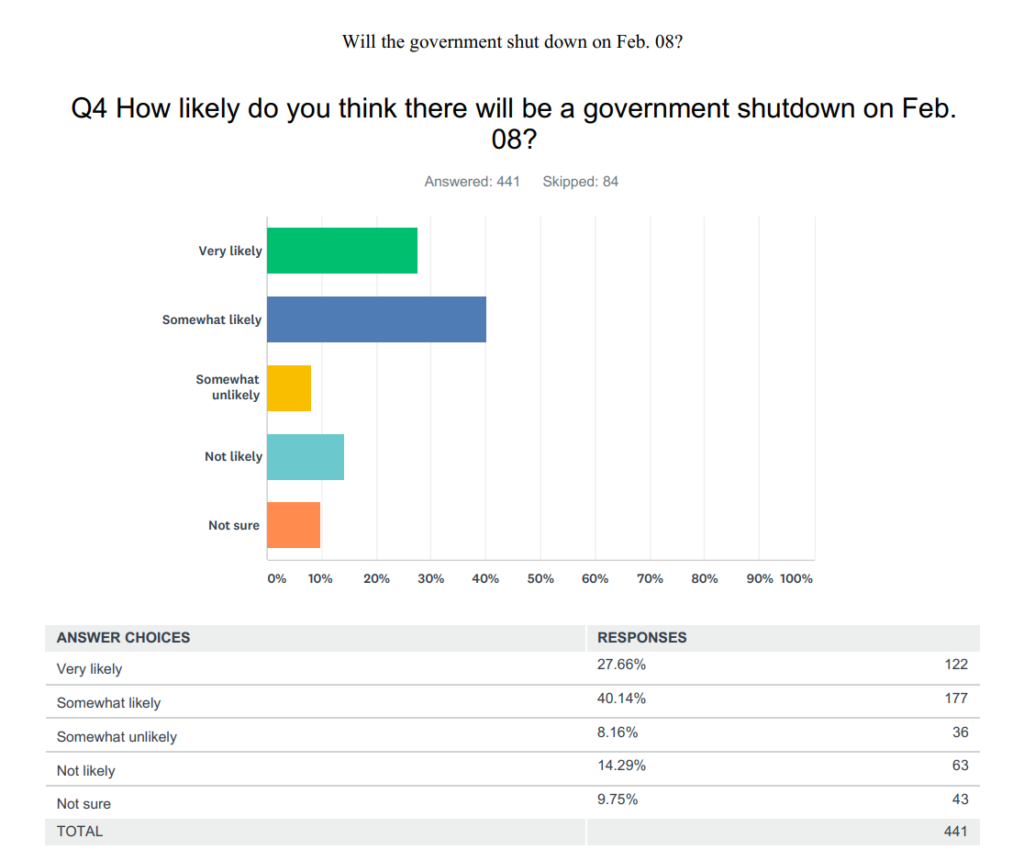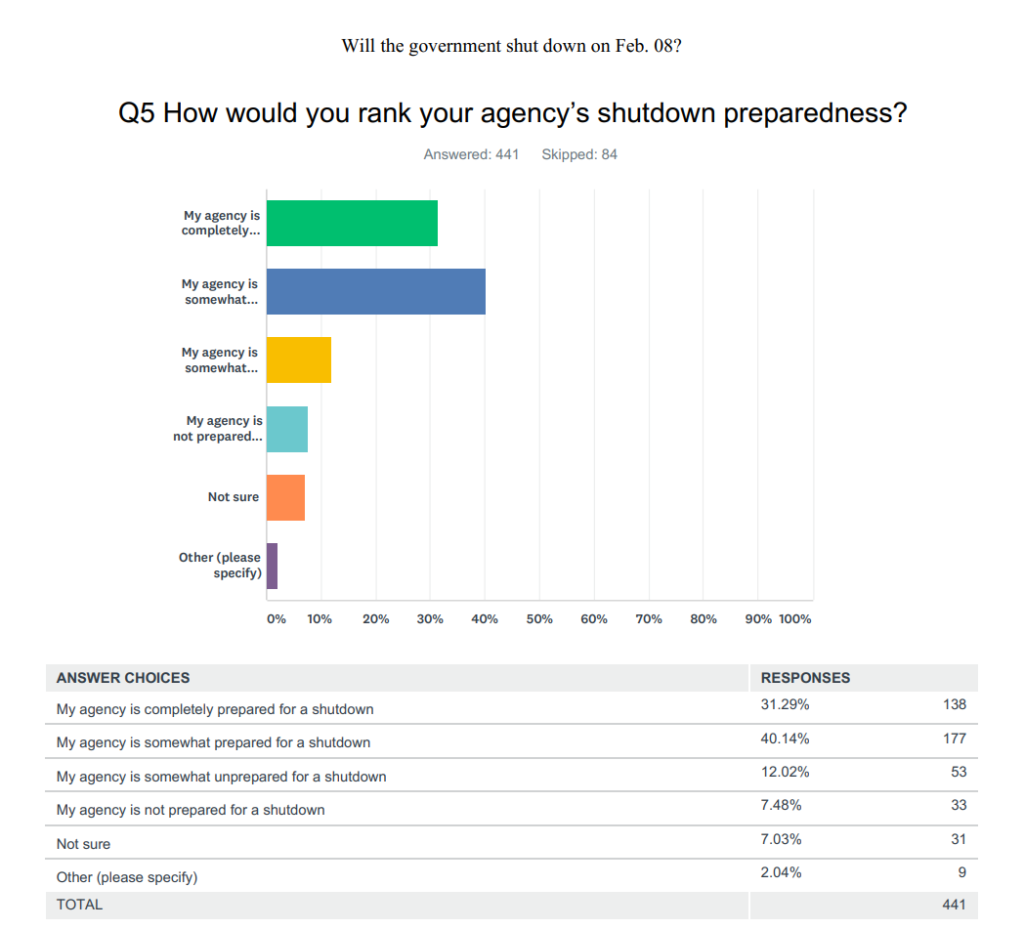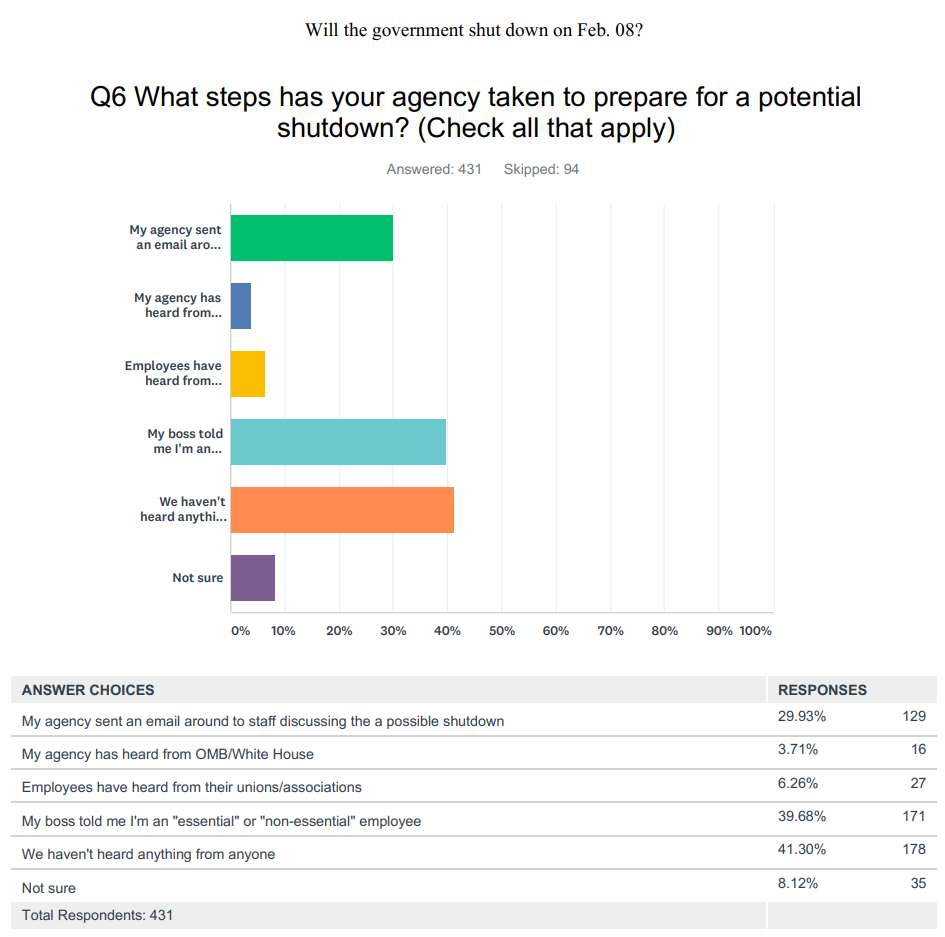
Feds remain less than impressed as 5th CR looms
Will Congress pass another CR or shutdown the government again? Federal News Radio survey results show feds pessimistic about either outcome.
Federal employees and contractors continue to walk on eggshells when it comes to fiscal appropriations. As another shutdown looms, they are less optimistic that the federal government can be trusted to reach an agreement by the deadline.
Congress has until midnight Feb. 8 to pass a budget, or more likely another continuing resolution. The House passed a six-week extension on Feb. 7 for civilian agencies and full-year appropriations for the Defense Department. Meanwhile, the Senate has reached an agreement on a two-year spending cap deal, but has yet to take up the House’s bill.
While on the surface it seems Congress is on its way to a deal, not all legislators are on board. Minority Leader Nancy Pelosi (D-Calif.) initiated a filibuster on the House floor this afternoon to speak against the Senate’s proposed budget pact — pushing for a vote on immigration policy.
When Federal News Radio surveyed federal employees in January, nearly 70 percent said it was “very likely” or “somewhat likely” that the government would at least have a partial shutdown. Results from the survey before, during the holiday season, showed only 48 percent believing a shutdown was possible.
Federal News Radio decided to once again reach out to employees who may be holding their breath, and the results are still pessimistic.

More than 67 percent of the 441 respondents who answered the question say the government is “very likely” or “somewhat likely” to shutdown again this time around. In fact, should a shutdown occur, feds don’t seem like they would be all that surprised.
“We’ve been through it before, we know what to expect,” one respondent said.
With the previous shutdown scare being less than a month before, respondents seem to believe the agencies and offices will be less caught off guard. About 71 percent of survey takers said their agency was “completely” or “somewhat” prepared for a shutdown.
Not all felt that way though; some said they expect the same runaround they experienced during the last shutdown scare.
“My division was completely disorganized with the January 2018 shutdown. There was no communication and many of us were sitting around in our cubicles on Monday waiting to receive orders or sign whatever paperwork was necessary,” one respondent said. “You would think that they would remember the shutdown procedures from 2013 as the process was the same. It seemed like management assumed that the shutdown would not even happen. Therefore, everyone was running around like chickens with their heads chopped off,” wrote one respondent.
Another federal employee agreed, saying their agency had procedures, “but they vary [inconsistently] within the agency. which made for confusion during the last shutdown.”

Some major advancements of the House bill that make it different than the previous four CRs is language granting a $659 billion budget for the Pentagon, including $584 billion in base spending and an additional $75 billion for Overseas Contingency Operations. It would also grant funding for the Census Bureau to continue its work on the 2020 count.
The Senate agreement would also boost defense funding by about $80 billion, raise non-defense spending by about $60 billion, and contains almost $90 billion in disaster aid for hurricane-slammed Texas, Florida and Puerto Rico.
Senate Minority Leader Chuck Schumer (D-N.Y.) called the agreement “a genuine breakthrough.”
Whether the six-week stopgap bill is passed or not, some agencies have yet to release any vital information for employees should even a partial or short-term shutdown occur, according to the employees who responded to our survey. In fact, around 41 percent said they haven’t heard anything.

For the most part, federal employees and contractors seem to understand what they need to do, or will have to do, if either outcome occurs.
But from the survey results, they still seem pessimistic either way.
Copyright © 2025 Federal News Network. All rights reserved. This website is not intended for users located within the European Economic Area.
Steff Thomas is a digital editor at Federal News Network.





